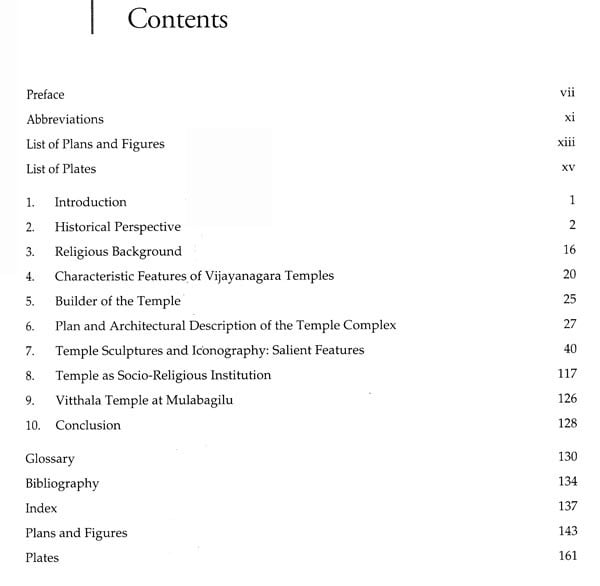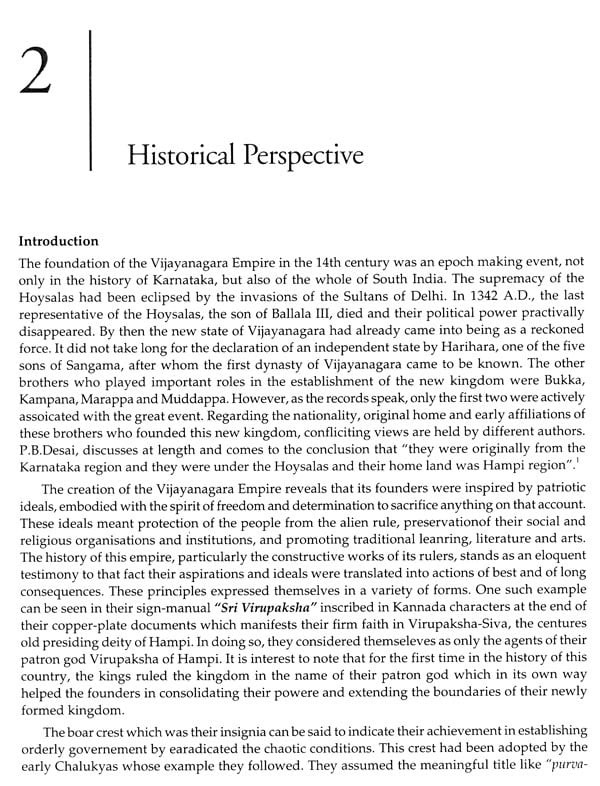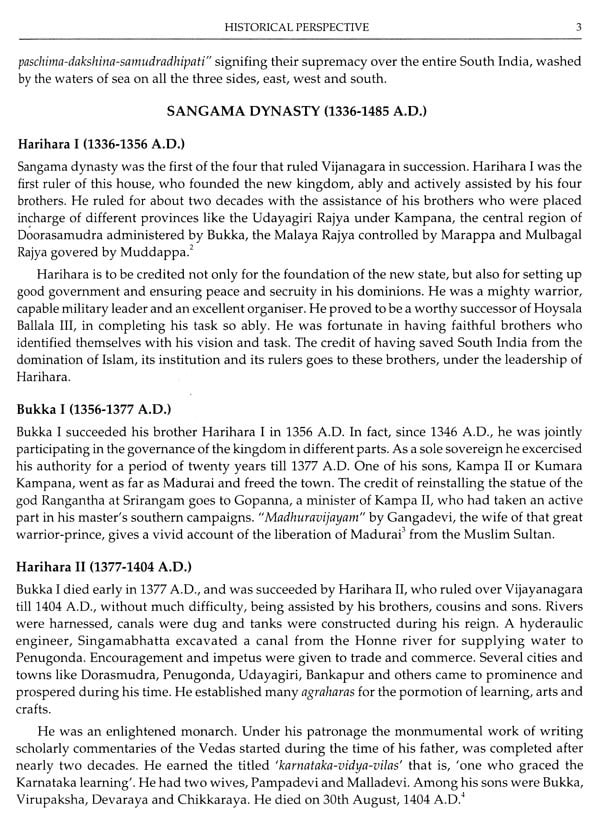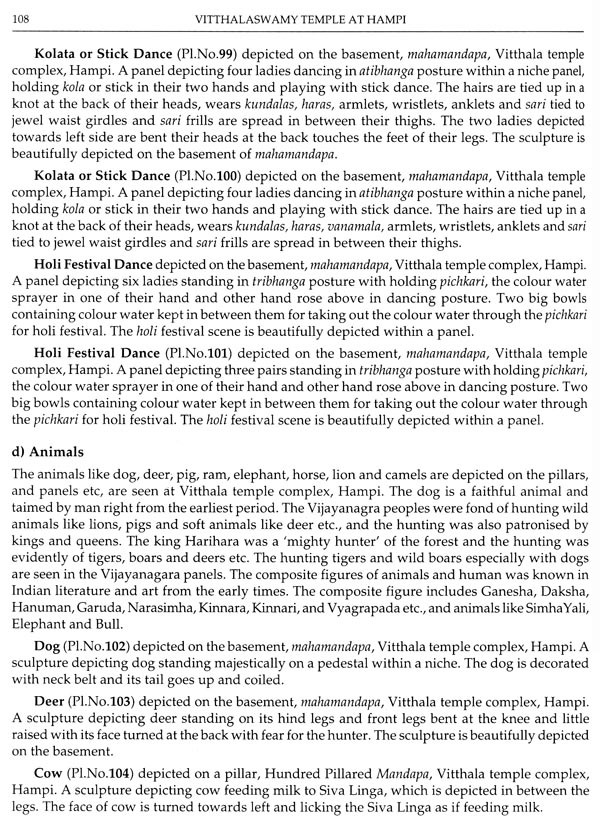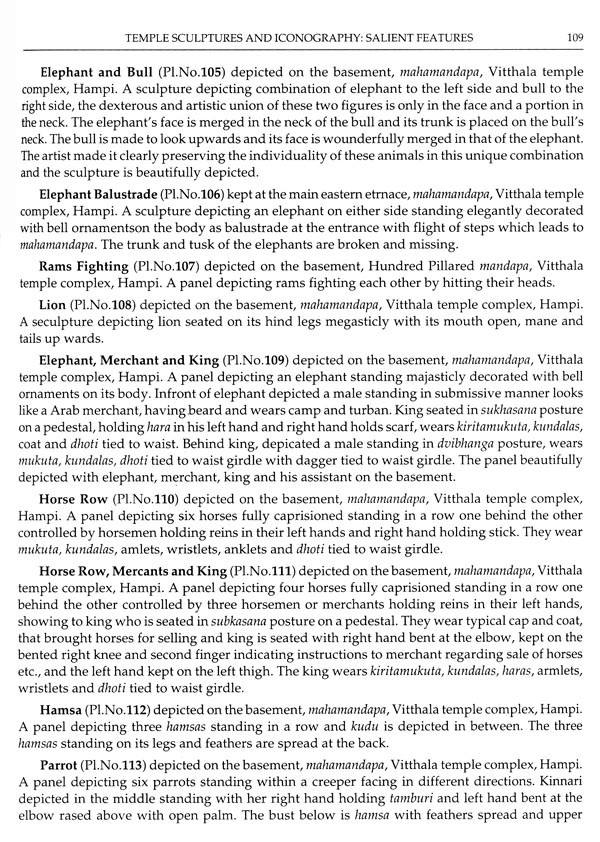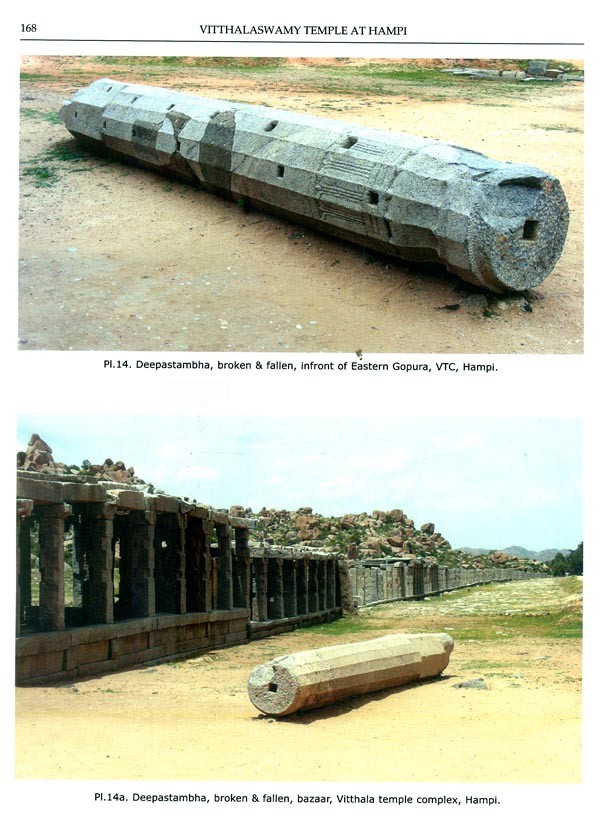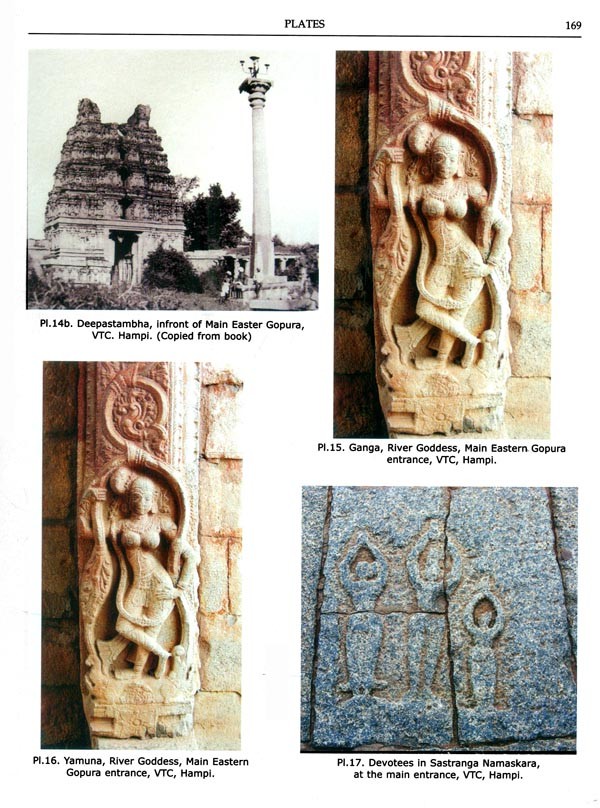
Vitthala Swamy Temple at Hampi
Book Specification
| Item Code: | AZG301 |
| Author: | K.M. Suresh |
| Publisher: | KAVERI BOOKS |
| Language: | ENGLISH |
| Edition: | 2018 |
| ISBN: | 9788174792075 |
| Pages: | 272 (Throughout B/w and Color Illustrations) |
| Cover: | HARDCOVER |
| Other Details | 11.00x9.00 inch |
| Weight | 1.14 kg |
Book Description
The whole Vitthala temple complex on plan consists of a garbhagriha, antarala, pradkashinapatha around garbhagriha and antarala, sabhamantapa or navaranga with mukhamantapa, towards north and south, mahasabhamantapa or maharangamantapa with entrances on three sides, towards east, north and south, kalyanamandapa, uyalamandapa, bhoamandapa, nuru kambadamantapa, Amman shrine, parivara shrines, vahana shrine in the form of a stone chariot and enclosed by prakara with three gat high walled three gateways on the east, north and south and gopuras. The gate gateways are intact and upper portion of gopuras are in ruined condition. The Vitthala temple was in full swing, active and the image of Vitthala was worshipped till 1565 A.D., when Vijayanagara was taken and sacked after the battle of Rakkasigi-Tangadigi at Talikota.
The Chapter I and II deal with Introduction and Historical Perspective of Vijayanagara dynasty. The Chapter III and IV deals with Religious Background and Characteristic Features of Vijayanagara Temples. The Chapter V and VI deals with Builders of the Temple and Architectural Description of the Temple Complex. The Chapter VII and VIII deals with Salient Features of the Temple Sculptures and Iconography and Temple served as Socio-Religious Institution. The Chapter IX deals with contemporary and similar type of Vitthala temple at Mulabagilu in Kolar district and the Chapter X is a Conclusion with sum up of all the chapters.
Although, a number of scholars have dealt with Vitthala temple complex and Hampi temples, the author have tried here to compile all the published information in the form of a compendium with due acknowledgements.
Since his inception the Archaeological served in various capacities the Archaeological Museums at Bijapur, Aihole Badami Karnataka and Madhya Pradesh. has been field worker and excavator the Excavations Branch IV Archaeological of India, Bhubaneswar in Orissa.
Suresh has published more 22 books Orissa Madhya Pradesh, which includes Sculptural Art Hampi; Saivite Sculptures Khajuraho; The Iconography of Vishnu Khajuraho; Kandariya Mahadeva Temple Khajuraho; Lakshmana Temple at Khajuraho: Karnataka Devalaya Kosha: District; Karnataka Devalaya Koppala District; Temples of Temples of Vol. II: Archaeology of Ramayana Sculptures from Hampi; Vijayanagara Hampi; Encyclopedia of Architecture: Hindu, Buddhist, Jain Hemakuta: Recent Researches Archaeology Museology: Panchatantra: Recent Researches in Archaeology: Raghusmriti: Recent Reseaches Archaeology. Temple Orissa.
member many academic societies Kannada University, Hampi and for other Universities. He UGC Committee for Museology Conservation and Archaeology also Committee Member History and Archaeology.
present, working Visiting Professor in Institute Science Campus, Bangalore, The Indian Digital Heritage Project Hampi.
The Vitthala temple is one of the biggest and best examples of true typical Vijayanagara style of 15th century AD, situated on the southern bank of Tungabhadra River in the Vitthalapura at Hampi. The Vitthala temple was in full swing, active and the image of Vitthala was worshipped till 1565 A.D., when Vijayanagara was taken and sacked after the battle of Rakkasi-Tangadi at Talikota.
The Chapter 1 and 2 deals with Introduction and Historical Perspective of Vijayanagara dynasty. The Chapter 3 and 4 deals with Religious Background and Characteristic Features of Vijayanagara Temples. The Chapter 5 and 6 deals with Builders of the Temple and Architectural Description of the Temple Complex. The Chapter 7 and 8 deals with Salient Features of the Temple Sculptures and Iconography and Temple served as Socio-Religious Institution. The Chapter 9 deals with contemporary and similar type of Vitthala temple at Mulabagilu in Kolar district. The Chapter 10 is a Conclusion with sum up of all the chapters.
Although, a number of scholars have dealt with Vitthala temple complex and Hampi temples, I have tried here to compile all the published information in the form of a compendium with due acknowledgements. I am thankful to my colleague and friend Dr.S.Y. Somashekar for his unstinted assistance. My thanks would be incomplete without acknowledgements for my wife Smt. Gauri Suresh, who throughout the process for this work was a source of inspiration to me. Last, but not the least, my hearty thanks to Shri Abhishek Goel of Kaveri Books, New Delhi for his kind co-operation, quick and beautiful printing work.
**Contents and Sample Pages**

